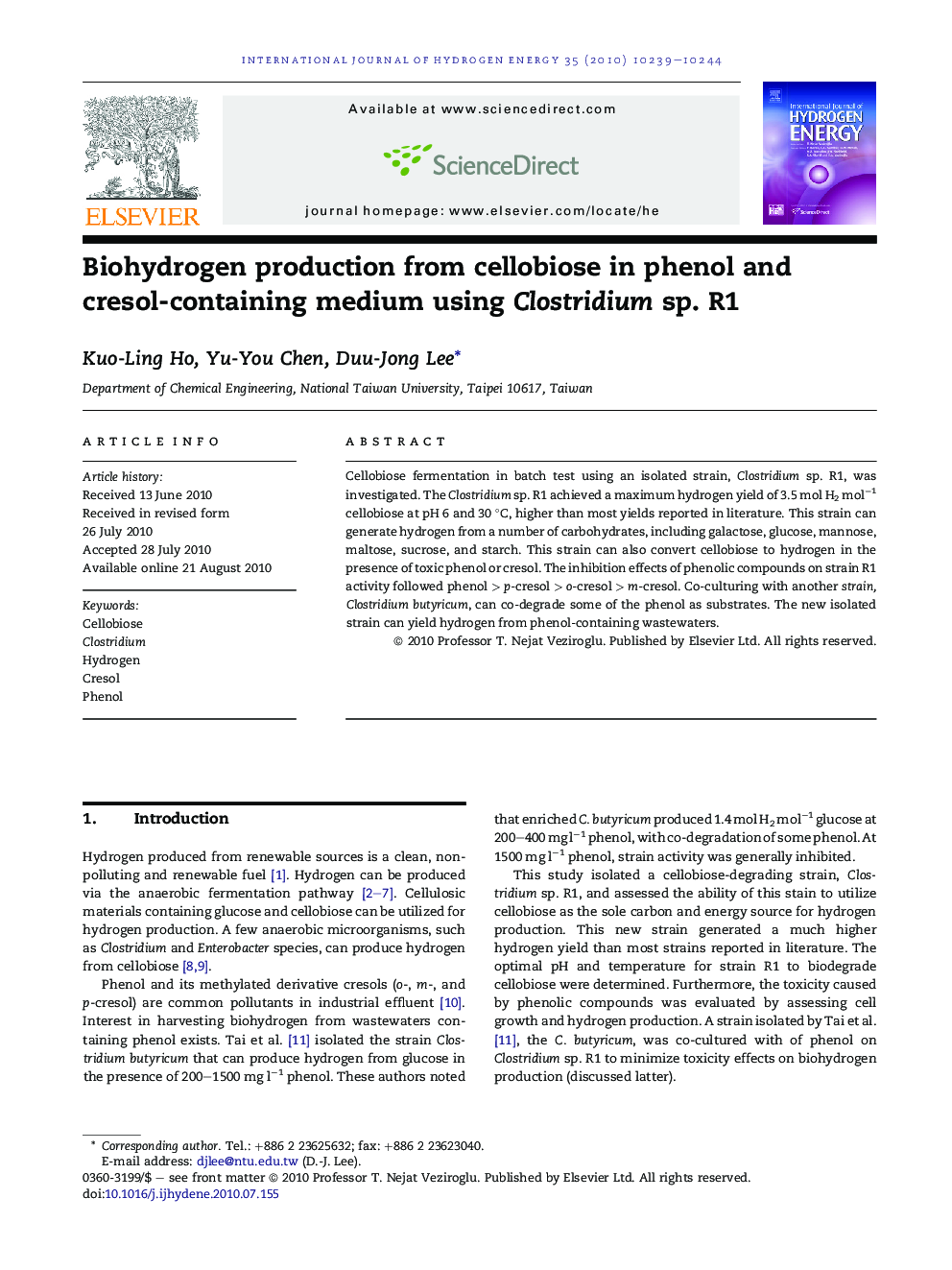| Article ID | Journal | Published Year | Pages | File Type |
|---|---|---|---|---|
| 1280077 | International Journal of Hydrogen Energy | 2010 | 6 Pages |
Cellobiose fermentation in batch test using an isolated strain, Clostridium sp. R1, was investigated. The Clostridium sp. R1 achieved a maximum hydrogen yield of 3.5 mol H2 mol−1 cellobiose at pH 6 and 30 °C, higher than most yields reported in literature. This strain can generate hydrogen from a number of carbohydrates, including galactose, glucose, mannose, maltose, sucrose, and starch. This strain can also convert cellobiose to hydrogen in the presence of toxic phenol or cresol. The inhibition effects of phenolic compounds on strain R1 activity followed phenol > p-cresol > o-cresol > m-cresol. Co-culturing with another strain, Clostridium butyricum, can co-degrade some of the phenol as substrates. The new isolated strain can yield hydrogen from phenol-containing wastewaters.
